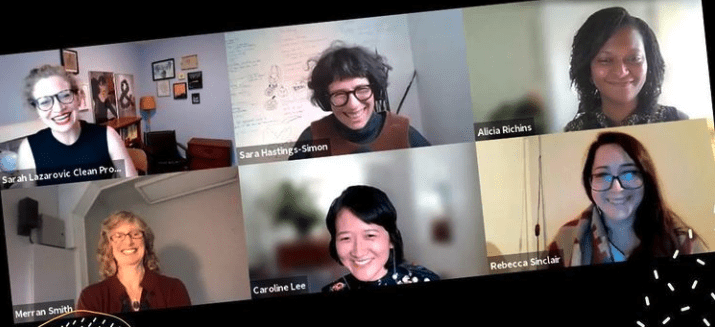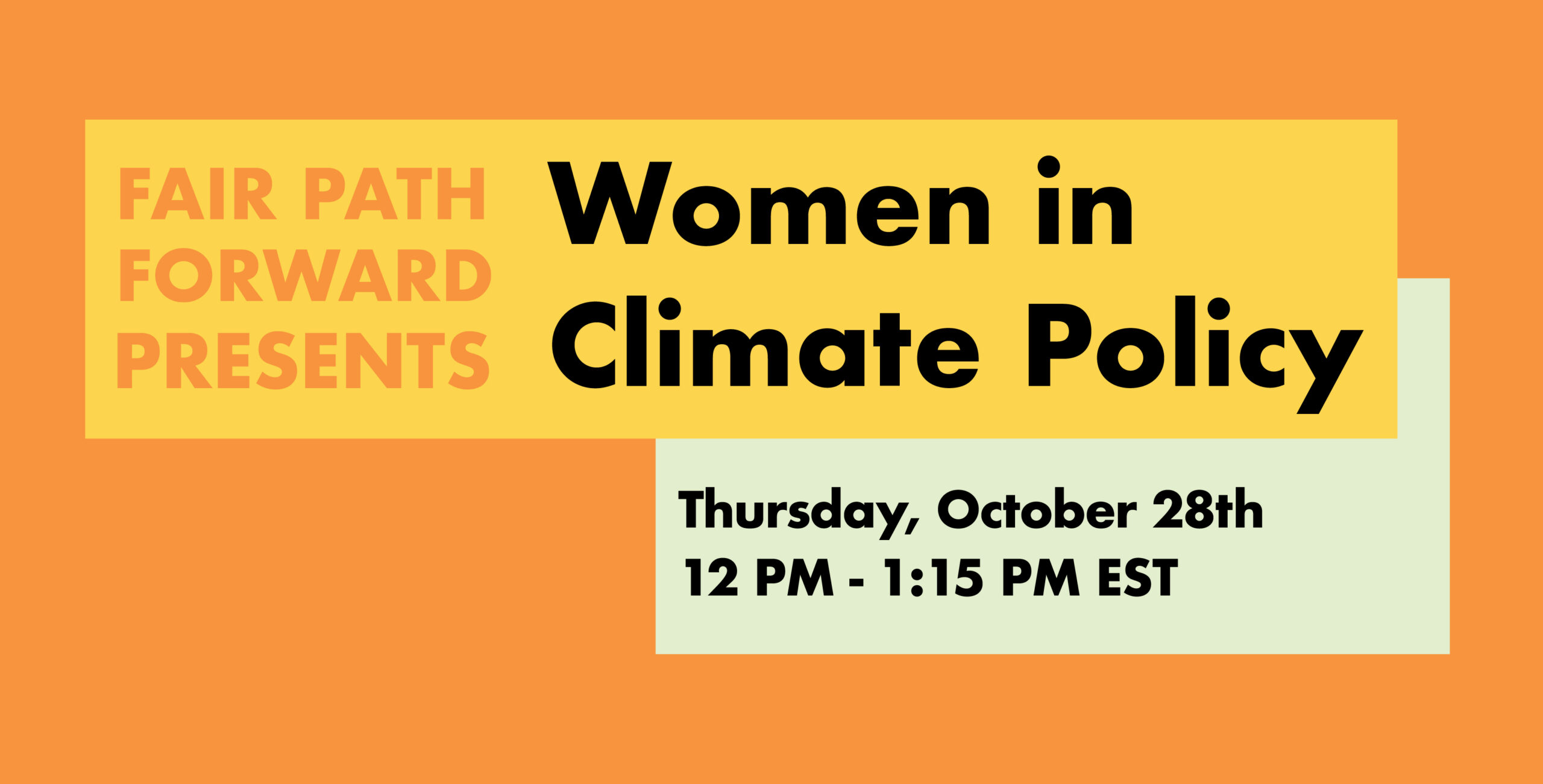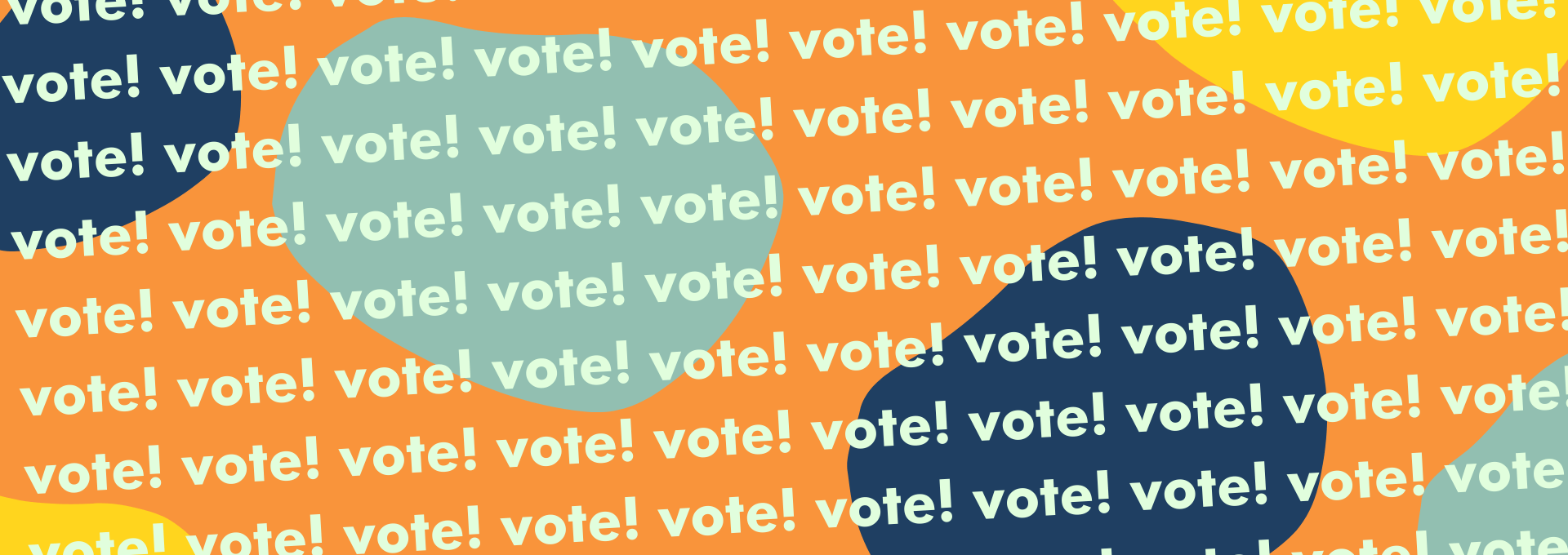Thank you so much for attending yesterday’s panel and sharing your thoughts and questions with us. And thank you to all our wonderful panelists. Here’s a recording of the talk if you missed it.
If you’d like to learn more about Indigenous Climate Action’s four policy goals for COP, you can do that here. They also have an excellent report on Decolonizing Climate Policy, with part 2 coming out soon.
Sara mentioned gender differences when it comes to climate risk perception. There’s lots of work being done in this area. Here is one paper.
Sara also recommends: One resource that I didn’t mention but is a great (although dense) read on the mechanics of climate policy is the book “designing climate solutions.” I believe it is available for download free here. It is very much a nuts and bolts of policy book (and misses the social side of implementation we discussed). but I still recommend it as a good resource for those who want to catch up on the various jargon that can be thrown around in climate spaces.
Some of the links we shared in the chat:
Climate change impacts women more than men. 80% of the refugees displaced by climate are women. (UN figures)
Current COP leadership is 25% Female and 75% Male. (She Changes Climate.)
Countries with more female political leaders pass more ambitious climate policies. (Yale Climate Comms) (Nature Climate Change Paper)
More Women in Boardrooms Mean Better Climate Policy (Bloomberg, Study)
Gender parity is also the key to solving the finances of the climate crisis: in a “full potential” scenario in which women play an identical role in labour markets to men, as much as $28 trillion, or 26%, could be added to global annual GDP by 2025. This is more than enough to bridge the climate finance gap needed to fund the battle against climate change, which stands at €530 billion ($585 billion) per year by 2020 and €810 billion ($894 billion) by 2030. (McKinsey)
Your questions that we did not get to:
As Alicia mentioned, community collaboration and Land Back (specific inclusion of Indigneous matriachs and youth) must be included in policymaking if we are discussing climate change action and climate justice. Are there any current policies prioritizing true Indigenous land and food soverignty? Any insight on how climate policies can integrate Land Back and tackle the environmental and social issues we see happening such as on Vancouver Island at Fairy Creek – where there is conflict in negotiations between colonial government systems, band councils and traditional Indigenous law and hereditary chiefs?
Here’s ICAs statement on Fairy Creek, which calls for an immediate cessation of old growth logging. ICA’s Decolonizing Climate Policy report (and webinars) provide some very helpful context for understanding where to go. Here’s Webinar 1 and Webinar 2.
Do any of you know if there is a place to train those who will build the transformative infrastructure? Home, transportation, businesses?
This is sorely needed. Efficiency Canada does great work on building codes, and is imminently launching a career hub. Canada Grid is working on improving and connecting our grid. Eco Canada offers training and resources. But this is a vast and interconnected problem that will require retraining on the most massive scale.
What do we need instead of GDP?
Increasingly, a broader range of avenues are being proposed to speak to flourishing and wellbeing. From Indigenous wisdom on reciprocity to the delightfully-named Doughnut Economics to frameworks like the UN’s Sustainable Development Goals that Alicia articulated, the discussion must be broadened.
Panelists:
Dr. Sara Hastings-Simon, Assistant Professor, University of Calgary
Caroline Lee, Senior Policy Analyst, Canadian Institute for Climate Choices
Alicia Richins, Sustainability Consultant
Rebecca Sinclair, Research and Policy Analyst, Indigenous Climate Action
Merran Smith, Executive Director, Clean Energy Canada
Thanks so much for coming!
Please let us know if there are things we might do to improve the experience.
You can follow Fair Path Forward on Instagram or Facebook, and subscribe to our newsletter.




leave a comment